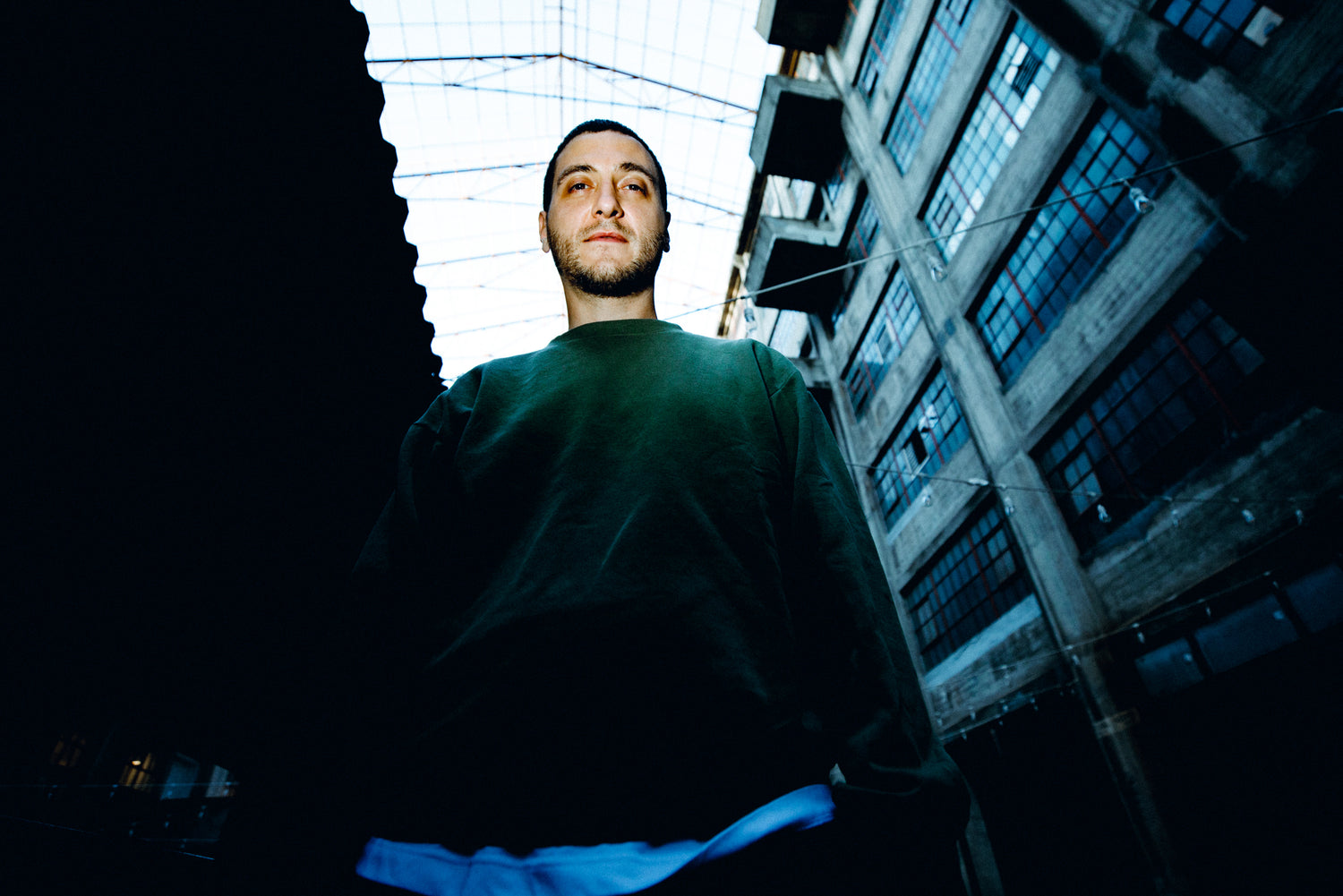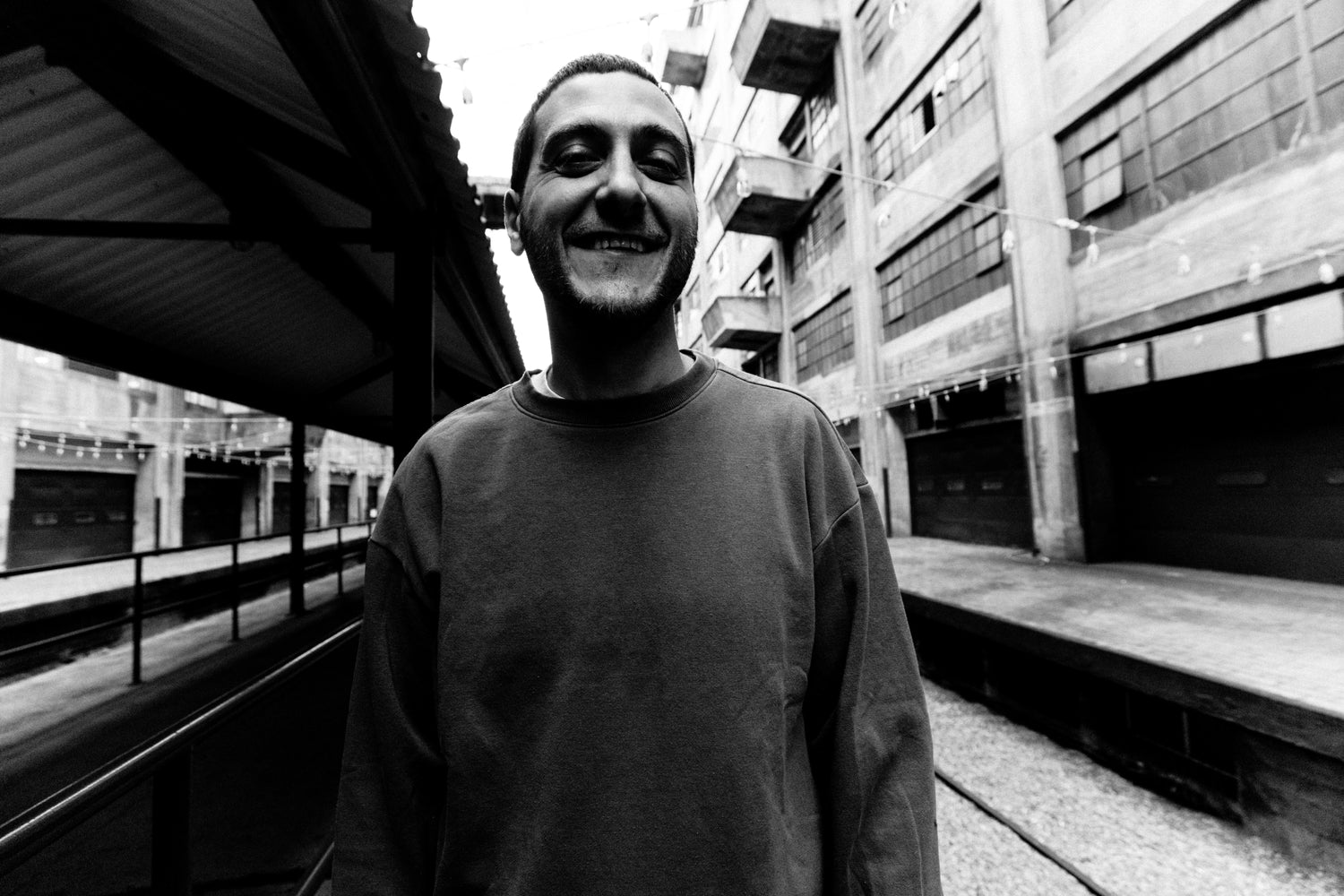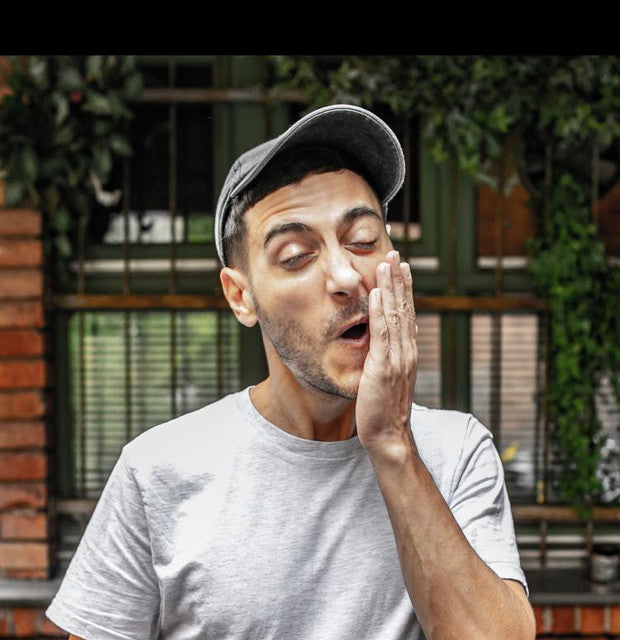Black Loops interview
We recently interviewed Black Loops in anticipation of the upcoming event on February 1st. During our conversation, he shared insights about his beginnings, musical influences, performance style, and his aspirations for the future.
Beginnings and Background
1) How did you first get into DJing and producing music?
I began my musical journey as a drummer, playing in various bands and exploring genres such as ska, punk, funk, and soul. In my early 20s, I transitioned into being a session drummer for some well-known Italian bands from my hometown. Around the same time, I started attending club nights in the area, particularly at a venue called Mirage. This club was known for hosting some of the best international DJs, including Louie Vega, Frankie Knuckles, and David Morales, on Thursdays and Fridays.
My first real encounter with house music happened at Mirage, but the defining moment came when the resident DJ played a track by Metro Area called Miura. Even today, it’s a highly regarded track that also gained popularity after being featured in GTA: San Andreas. Hearing that track for the first time in early 2001 was a turning point for me—it completely blew me away and made me realize that house music was the path I wanted to pursue with all my heart.
2) Who were some of your early influences, both musically and personally?
I come from a drumming background, so my early influences were rooted in iconic bands like James Brown, Grand Funk Railroad, the early Red Hot Chili Peppers, and Rage Against the Machine. I was also a huge fan of all the ’90s rock crossover bands—they were a big part of my musical foundation. However, I always had a fascination with electronic elements. Bands like DEVO and Kraftwerk (of course), and more recently LCD Soundsystem and Soulwax, had an edge that really captivated me.
My real interest in electronic and house music, though, began to take shape in the early 2000s. That period marked a significant shift in my musical journey, leading me toward a deeper connection with the genre.
3) How did the name “Black Loops” come about?
People often ask me about the story behind my name—especially because they assume I’m Black, which usually leads to a bit of disappointment when they find out I’m not. The truth is, the name has a really silly origin. At the time, I was brainstorming ideas for the project while listening to a band called Black Lips. I decided to play around with the name, and what came out was Black Loops. Simple as that!

BLACK LOOPS
1st of February at Levenslang - Houseum Label Night
4) What was the music scene like when you started out in Italy?
When I decided to take DJing and music production more seriously here in Italy, it was during the rise of the “electro” wave. Labels like Ed Banger, Southern Fried, and Mad Decent were dominating the scene. I went along with it for a while—I enjoyed the aggressive edge of the sound, and in the beginning, it felt fresh and unique. However, that didn’t last long for me, especially as that sound eventually evolved into the infamous EDM.
Around 2007–2008, that shift was a turning point for me. It made me curious to explore the roots of electronic music. Italy had played an important role in the ’90s house music scene, and I realized there was a lot of history and music I needed to discover. This exploration became a key part of my journey and shaped the direction I wanted to take.

Riccardo Paffetti
Age: 40
Performance
5) What’s one of the most memorable gigs you’ve ever played?
There are a couple of gigs that will always stay with me.
The first one was in Cape Town, South Africa, in January 2019, the party is called We House Sunday. The vibe at that party is something words can’t fully capture—you truly had to be there to feel it. It’s the only time I’ve ever shed a tear during a set, and that says a lot about how special it was.
The second one is more recent: my all-nighter at Public Records in New York City last April. The club, the sound system, and the crowd are truly one of a kind. That night reminded me why New York holds such an important place in the world of this music. You can actually find the recording of that night on my SoundCloud.

Future and Legacy
6) What are your main goals for the future as an artist?
One of the milestones I’ve always dreamed of achieving in my career is actually happening soon: my first album is set to release in May 2025. It’s an exciting step, and I can’t wait to share it with everyone!
7) Do you see yourself expanding into other areas of music, such as producing for other artists or mentoring up-and-coming DJs?
I’ve been doing this for quite a few years, but I decided to take a step back recently to focus on my own career. That said, who knows what the future holds? If the right project comes along—something I truly connect with—and there’s an opportunity to produce it, I’ll definitely keep an open mind!
8) What advice would you give to aspiring DJs and producers?
In a world where many are relying on templates and AI to make music, it’s easy to get caught in the trap of shortcuts. Sure, it might work for a while, but as far as I’m concerned, that approach has a shelf life. The real magic—and longevity—comes from developing your own craft, finding your unique process, and shaping your own sound. It’s not just about standing out; it’s about creating something that feels authentic and deeply satisfying, both for you and your listeners. That’s the key to lasting success.
9) Looking back, what would you like to be remembered for?
I hope to be remembered as an artist who genuinely cared about his craft and always stayed true to himself. For me, it’s never been about chasing trends or taking shortcuts—it’s about creating something meaningful, something that reflects who I am and connects with others on a deeper level. I’ve always believed in keeping it real, both in the music I make and in the way I approach my journey. If my work can inspire others to follow their passion authentically, then I’ll feel I’ve truly left a mark.

